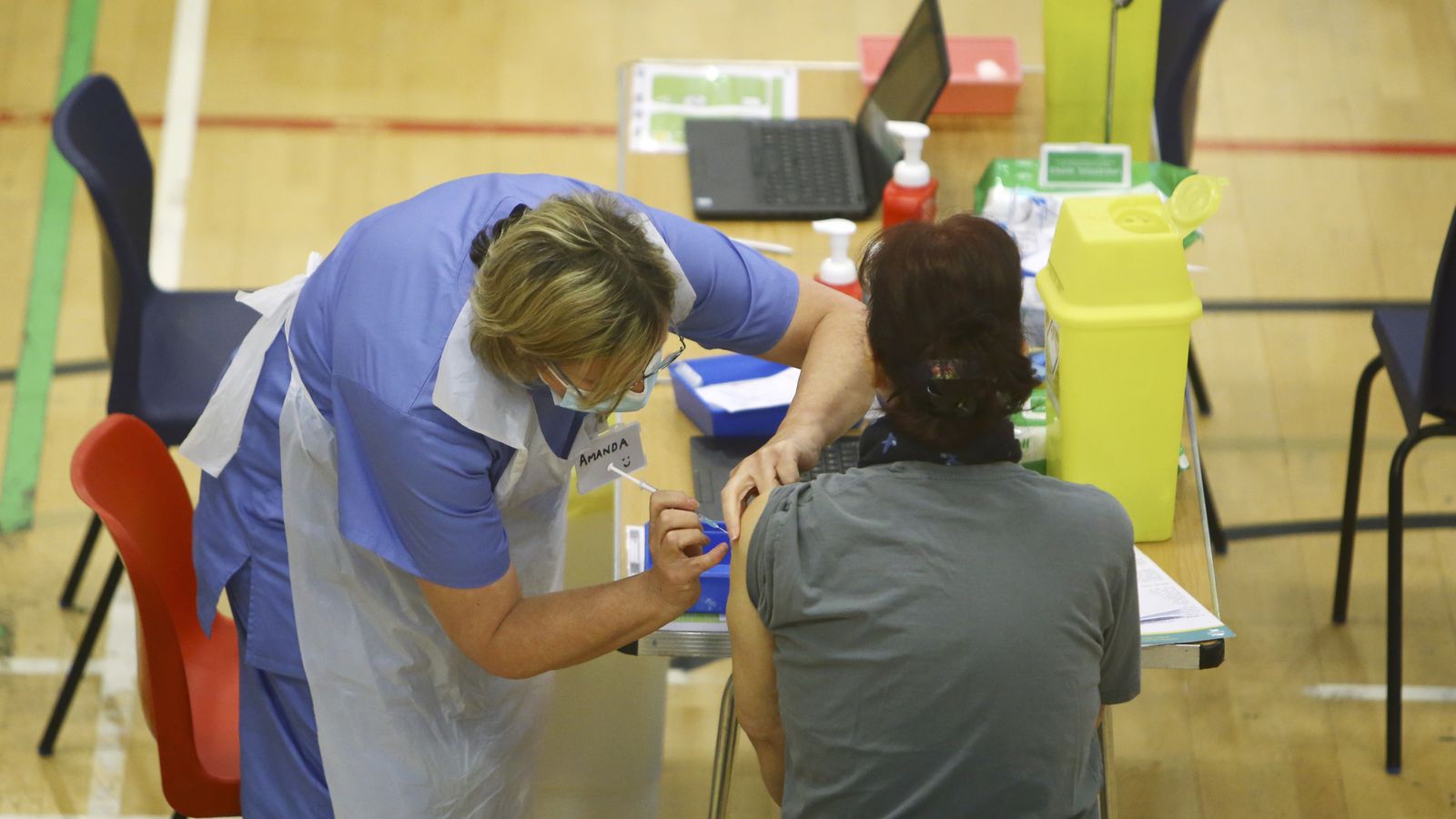One side-effect of the coronavirus pandemic was that it derailed plans a number of large companies had for overhauling their activities.
Now that the vaccination programme is being rolled out, a lot of these plans are being dusted off, as for example with news this week that Travis Perkins, the builder’s merchant, is pressing ahead with the demerger of its do-it-yourself arm Wickes.
Another example came on Friday when Smiths Group, the industrial technology company, reiterated plans to demerge its Smiths Medical arm by the end of January next year.
The decision has raised eyebrows because it is currently the largest of the company’s five distinct divisions.
Some may see the demerger as ironic because the virtues of the business, whose products include ventilators, syringe pumps, tracheostomy tubes, have become very clear during the pandemic.
Yet it has been non-core for quite some time and, in fact, Smiths has been trying to sell it for more than a decade.
The demerger may also go to highlight the value tied up in Smiths Medical which, even a decade ago, was turning down offers of £2.5bn for it from private equity companies. To put that in context, the overall stock market value of Smiths Group – prior to today’s results – was £5.76bn. The management is also hoping that, as a focused business, it will also be able to grow more rapidly.
Andy Reynolds Smith, the chief executive, said: “We hit the pause button during the first half of last year due to the COVID crisis, to concentrate our efforts on the fight against the virus.
“The business has achieved some simply wonderful things, including a global ventilator programme and, more recently, the supply of premium hypodermic syringes around the world, with more than one third of the United States expected to be vaccinated with a Smiths needle – including President Biden.”
He said the board would continue to evaluate opportunities – indicating that Smiths remains open to a sale of Smiths Medical as well as a demerger.
The separation of a business that has played such a big role in the battle against COVID-19 is also striking for another reason. Not every company is managed by executives who are prepared to offload their biggest single business.
Shorn of its medical arm, Smiths Group will be a much smaller company, which would not necessarily appeal to the vanity of some boardroom types.
West Countryman Mr Reynolds Smith, who took up the role in September 2015, is not one of them.
Instead, with little fanfare, he has set about re-shaping a company that still attracts the odd moan from investors for being a conglomerate.
On the face of it, the four business units that will remain after Medical has been separated do not have an awful lot in common.
In order of size (by sales) they are John Crane, which supplies couplings, mechanical seals and bearings to the oil and gas industry; Smiths Detection, which makes airport scanners; Flex-Tek, which makes hosing and tubing and Smiths Interconnect, which supplies electronic components and products to the defence, aerospace and communications sectors.
Yet Mr Reynolds Smith argues the four have lots in common – not least the fact that they are all technology businesses with strong digital capabilities, each with growth potential, are well positioned in their markets and that are each geared to big global trends.
He told investors today: “The COVID crisis has, in some cases, accelerated and brought focus to many of these global trends which are key across Smiths, including a return to safe mobility, increasing biological detection, clean air, efficient use of fossil fuels to lower emissions, process industry efficiency and energy transformation. And of course digitisation spans all of these and is accelerating at a dizzying pace.”
Understandably, for a business that is heavily geared towards serving customers in the oil and gas industry and the aviation sectors, Smiths has had to negotiate challenging conditions.
Today’s half year results, covering the six months to the end of January, saw pre-tax profits in the businesses Smiths is retaining fall by 9% to £145m.
Within that, sales at John Crane were down by 14%, at Smiths Detection by 7% and Flex-Tek by 7%, with Smiths Interconnect growing sales by 9%. Sales at Smiths Medical were down by 2%.
Some may be surprised that, with aviation having collapsed during the last year, the decline in Smiths Detection was not steeper.
The reason for that is because sales and profits on the business depend as much on servicing scanners and the aftermarket as much as they do on selling new kit. Half of overall group revenues at Smiths now come from the after-market and service.
Declines in passenger numbers were also offset, partially, by cargo. And there have also been new sales in detection despite the hiatus in air travel. Smiths has recently helped Heathrow Airport upgrade its security which, Mr Reynolds Smith noted, “is state of the art technology putting Heathrow ahead of the latest EU standards”.
Detection in future will also not be confined to stopping terrorists. It will also take in – as has been highlighted by the crisis – detecting pathogens and represents a huge growth opportunity.
Similarly, while Flex-Tek was also hurt to a degree by weakness in commercial aerospace its work for military customers and customers in other fields such as construction.
Meanwhile, in John Crane, Mr Reynolds Smith said sentiment in the oil and gas sector had “improved markedly in the last few weeks”, as shown by the recent recovery in crude prices and a rise in demand for crude to 96 million barrels a day, compared with the pre-pandemic level of 100 million barrels.
In Smiths Interconnect, the only unit to grow operating profits in the period, sales were lifted by strong demand for semiconductor testing equipment and from the satellite industry.
While Mr Reynolds Smith has put the emphasis on growing the business organically, leading to the company reporting in 2018 that it had returned to sales growth for the first time in five years, he has also not been averse to buying businesses too. It was still, though, a surprise today to learn how many. Smiths has completed no fewer than 23 acquisitions since 2016 with a total of £1.5bn.
Today’s results were better than expected and sent shares of Smiths up by more than 5%.
Mark Davies-Jones, of broker Stifel, told clients: “Perhaps most encouraging in the continuing resilience of the Smiths Detection business – remarkably, sales to the aviation sector are up year on year in the period, supported by the very strong regulatory-driven backlog that the group had as it went into this downturn.”
And Andrew Wilson and William Ashman at JP Morgan Cazenove said: “We believe Smiths Group’s defensive earnings are undervalued. Additionally, we see optionality for shareholders from both the Medical split and the industrial core.”
This storied old company, which began life in London’s Clerkenwell district in 1851 as a jeweller and watchmaker and which famously supplied Sir Edmund Hillary with a watch during his conquest of Everest with Tensing Norgay, is often over-looked by the City.
Its resilience through the pandemic may make some sceptics reappraise its prospects.






















